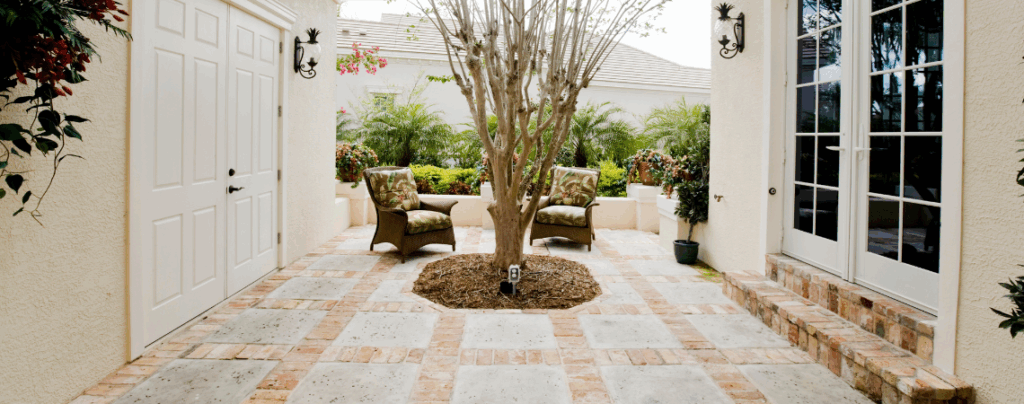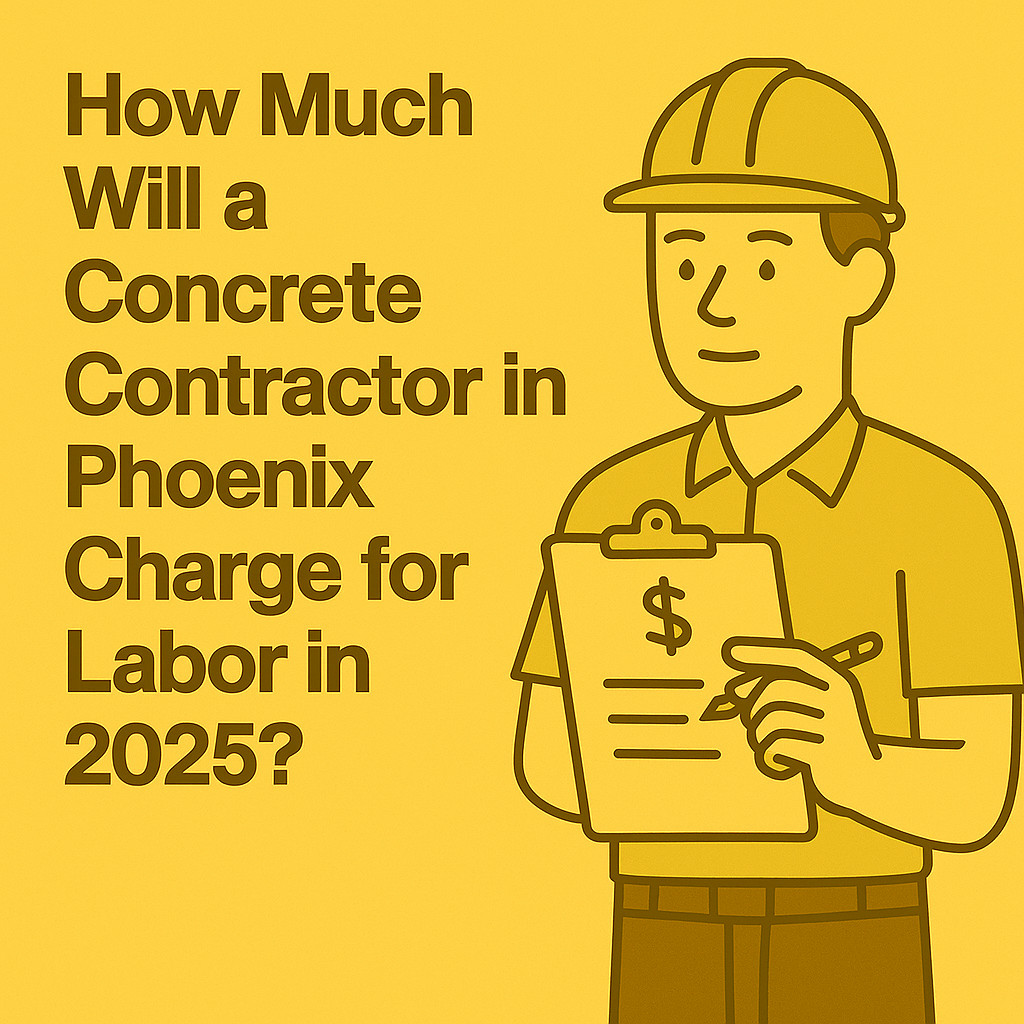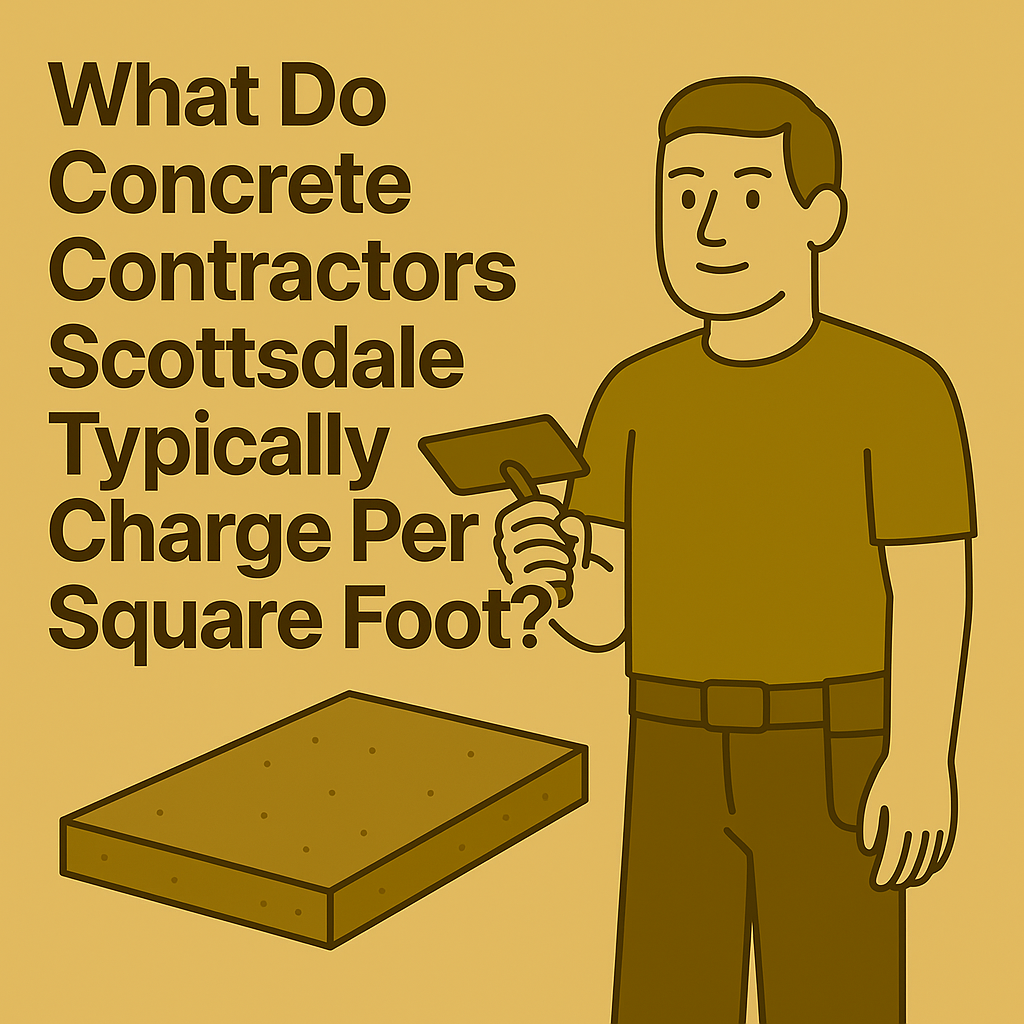Concrete Paver Downsides From a Paver Installer Chandler
When considering concrete pavers for your Chandler home, it’s smart to understand the full picture—including a few of the not-so-great aspects. While concrete pavers are budget-friendly and visually appealing, they’re not without drawbacks. They can crack due to temperature changes and ground shifts, and staining is a frequent concern. Plus, regular maintenance like sealing and cleaning is a must. While concrete may cost less upfront than brick or natural stone, the long-term maintenance and repair costs can add up. And with Arizona’s intense weather, that can be a major factor. Keep reading as a paver installer Chandler walks you through the realities behind concrete pavers.
Susceptibility to Cracking
Concrete pavers may look strong, but even the best materials can crack under pressure—literally. As a trusted paver installer Chandler, we’ve seen how temperature swings and shifting ground in AZ can wreak havoc on these surfaces. Unlike interlocking pavers that offer some flexibility, concrete pavers are more rigid and prone to cracking if the base isn’t well-prepped.
Drainage plays a major role in preventing damage. Without proper grading or a compacted base, moisture can pool and undermine the paver installation. Freeze-thaw cycles, though less frequent in Chandler, can still impact durability. Repairs are rarely minor—they often involve resurfacing entire sections. To avoid wear and tear, proactive sealing and expert craftsmanship are non-negotiable.
Challenges With Staining and Discoloration
Cracking isn’t the only downside. For many Chandler homeowners, stains and fading are ongoing headaches. Oil leaks on a paver driveway, pool deck spills, or even leaves left too long on patio pavers can cause blemishes. A paver installer Chandler will tell you—concrete is porous. That means it absorbs more contaminants, leading to long-term discoloration if not sealed.
UV rays in Arizona are intense and accelerate fading. According to the Interlocking Concrete Pavement Institute, regular sealing is essential every 3–5 years to prevent both stains and sun damage. It adds another layer of protection but requires maintenance.
Quick action is key: oil, wine, or food spills need fast cleanup. Even rainwater runoff can cause streaking on outdoor living surfaces. Regular pressure washing can help, but it increases maintenance time.
Labor-Intensive Maintenance Requirements
Paver installation may start off simple, but maintaining concrete pavers can get labor-intensive. As a seasoned paver installer Chandler, we outline these recurring tasks to every homeowner:
| Task | Frequency | Effort Level |
|---|---|---|
| Joint Sand Refills | Every 2–3 years | Moderate |
| Resealing | Every 3–5 years | Moderate |
| Cleaning Dirt/Stains | Monthly | High |
| Replacing Damaged Pavers | As needed | High |
Keeping your outdoor space clean, safe, and beautiful takes time and effort. From patio walkways to paver driveways, recurring cleaning and sealing ensure longevity but demand attention. Weeds may grow in joints if left unchecked. And replacing pavers—especially if many are cracked—can feel like redoing the job from scratch.
Initial Cost Considerations
Upfront, concrete pavers can seem like the best deal. A typical installation may cost between $8 and $15 per square foot. That’s cheaper than travertine pavers or brick pavers, which range from $20 to $30 per square foot. But don’t let the base price fool you.
According to HomeAdvisor, long-term repair costs for concrete pavers can quickly outweigh the initial savings. That’s especially true if improper installation causes shifting or cracking. A reputable paver company in Chandler will always stress the importance of proper preparation.
Natural stone and high-quality paver materials may have a steeper price tag but deliver better value long-term. Their durability reduces the likelihood of costly repairs and improves curb appeal.
Impact of Extreme Weather Conditions
In Chandler, AZ, weather can be unpredictable. We go from 110°F summers to monsoon rains in a flash. As a paver installer Chandler, we’ve seen how this affects concrete installation.
High heat causes expansion; nighttime drops cause contraction. That constant thermal shift stresses concrete pavers. If your base layer of sand or gravel isn’t solid, you’ll see movement, cracks, or heaving.
Pool decks and patio pavers near water are especially vulnerable. Rain can erode joints or cause water pooling. Freeze-thaw effects might be rare in Chandler but not impossible. All these conditions can speed up aging.
Importance of Proper Installation
No matter how durable your materials are, installation makes or breaks the project. A professional paver installer Chandler should always compact the sub-base properly, align each paver precisely, and plan for drainage. Missteps here lead to uneven walkways or driveways that don’t pass the test of time.
Expert paver installation services ensure your pavers are built to last and remain aesthetically pleasing. You’ll enjoy your outdoor space more when it’s reliable, safe, and low-maintenance. If done right, your new outdoor space could even boost home value.
Let’s talk lifespan. While concrete pavers can last 20–50 years, options like interlocking systems or travertine pavers can last up to 100 years with care. Here’s what Chandler homeowners should watch for:
Cracking Over Time: Accelerated by heat and ground movement.
Limited Flexibility: Concrete doesn’t handle shifting soil well.
High Maintenance: Sealing, cleaning, joint refills, repairs.
Shorter Lifespan: Especially in high-use zones like paver driveways.
Long-term, choosing high-quality materials and expert installation from a paver company helps reduce costs and improve appearance.

Frequently Asked Questions
What Is the Downside to Concrete Pavers?
They crack, stain easily, require maintenance, and are tough to repair.
What Are the Disadvantages of Concrete Paving?
Aside from aesthetic fading and wear and tear, the ongoing upkeep can be costly.
Do Concrete Pavers Crack Easily?
Yes—especially without proper grading, drainage, or joint spacing.
Is It a Good Idea to Put Pavers Over Concrete?
Usually not. It can cause water pooling and reduce drainage.
Conclusion
In Chandler’s unique climate, concrete pavers come with challenges—from cracking to discoloration. But with the right materials and a skilled paver contractor, many issues can be prevented. Whether it’s a patio, pool deck, or walkway, your paver design should be handled by experts.
Let us install high-quality paver systems that bring your vision to life with gorgeous style and easy accessibility.
Paradise Hardscapes – Pavers & Turf – Chandler











